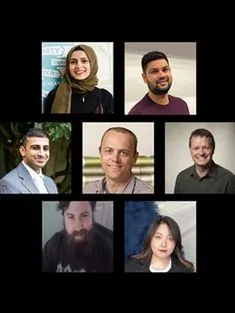Leeds Lab Educators
Prize
Horizon Prizes for EducationYear
2022
Organisation
University of Leeds
Citation
For the creation of experiments and activities that improve students’ preparation for research in organic synthesis

The Leeds Lab Educators are a group of academics and postgraduate students from the University of Leeds who are passionate about improving student education. Their work focused on preparing students for organic synthesis research, by creating a number of new and innovative experiments and activities to assist them in this area. The multidisciplinary team was made up of teaching staff and researchers who specialise in synthetic chemistry. With a shared passion for improving student education, they worked together to design experiments which would teach learners the skills needed to be a synthetic chemist, whilst also making sure it could be delivered within Leeds University lab curricula.
Biography
Leeds Lab Educators is a group of academics and postgraduate students from the University of Leeds who are passionate about improving student education.
It was really exciting to see the experiments and workshops working by getting students to 'think like scientists' and applying their knowledge of organic chemistry in the way a researcher would do.
Leeds Lab Educators
Q&A with Leeds Lab Educators
Where do you see the biggest impact of this technology / research?
We've been able to show that students are learning key skills and have a positive impact on their development. We also think we've helped to shift the focus of undergrad labs to have more experimental design and inquiry as part of the curriculum. It's also been great to see other universities implement more open-ended experiments in their laboratory curricula over recent years.
What was one of the biggest challenges of the project?
One of the biggest challenges is the uncertainty around whether students can do this type of work because there was not a lot of precedent for formally teaching students these types of skills and getting students to do open-ended experiments in 1st year.
How will this work be used in real life applications?
This work will help the development of our students into becoming scientists, so this will have an impact on the research our students will do in the latter parts of the degree and after graduation. Our students will apply what they learn to projects such as the development of new medicines and materials.
What inspires or motivates your team?
We're all motivated by improving the education of our students. We all recognise how important undergraduate laboratories are to the education of chemistry students, and want to make sure students can learn as much from this part of the degree as possible whether they go into a chemistry-related job or into another profession.
How do you see this work continuing/developing in the next few years?
We're interested in teaching students how to apply other aspects of chemistry to design experiments in the field of physical and analytical chemistry. This will help students prepare for research in other disciplines.
How does it feel to have been awarded an Education Horizon Prize from the RSC?
We're all immensely proud and honoured to have received this award. We hope it helps to shine a light of the type of work we are doing so that other Universities consider using similar methods for teaching their students.